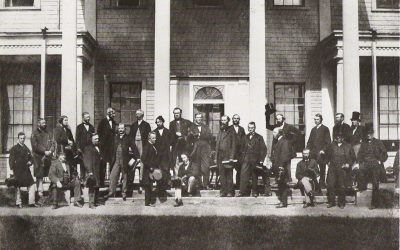MANITOBA unveiled the first steps of its new child care program yesterday, promising to spend over $14 million to improve wages and training programs for early childhood educators.
The money is part of the $26 million coming to Manitoba under the new national child care program, signed between the province and Ottawa in May.
The first step includes $11.5 million to increase wages and benefits for early childhood educators, so annual salaries fall between $27,000 and $30,000 a year. Currently, the salary range is about $18,500 to $27,800.
“We hope people who are considering leaving will realize now to be an early childhood educator is to be paid competitively,” said Family Services and Housing Minister Christine Melnick. “Early childhood educators are professionals in their own rights and should be paid and respected accordingly,” she said.
The national average salary is about $18,000, Melnick said.
There will also be $2.15 million spent to train early childhood educators. That money includes funding for programs at Red River College, University College of the North and Assiniboine Community College, $581,300 to pay substitute workers to step in to allow regular staff to attend training programs, and $200,000 in tuition support for students in early childhood education programs.
There is also $750,000 for a recruitment fund to bring qualified staff back into the field.
“We know the foundation of quality child care systems are trained staff,” said Melnick. “Our number one priority with the federal money will be to improve wages and benefits for early childhood educators in Manitoba.”
The federal deal will bring $176 million to Manitoba for child care over the next five years. In addition to wages and benefits Melnick has pledged to use the money to add 5,000 more child care spaces, and to expand nursery schools.
Child care workers were elated yesterday, noting the low wages for early childhood educators has meant recruiting and retaining quality staff has been next to impossible.
“I can’t even believe these numbers you’re talking about,” said Thelma Randall, director of the Cornish Child Care Centre in West Broadway, where Melnick made the announcement.
Melanie D’Souza, president-elect of the Manitoba Child Care Association, said everyone in the field will be cheering this news.
She noted at least 200 to 300 more workers are needed right now.
Low wages have been cited numerous times by child care advocates as a reason people are leaving the field in droves. It’s estimated 60 per cent of trained child care workers leave the field within five years because of poor wages.
In Manitoba almost half the children under five are in some form of child care. That’s up from two in five children in 1995.
There are 4,911 child care workers in the province.
mia.rabson@freepress.mb.ca
Just the facts
- Number of licensed child-care centres, nursery schools and licensed home-based day cares in Winnipeg: 621
- Number of licensed spaces for children up to 12 years old in Manitoba: 25,726
Average annual cost for daycare:
- $7,280 for an infant
- $4,888 for a preschooler
- $2,836 for a school age child
* Number of early child care workers in Manitoba in licensed centres: 4,911
* Number of vacancies for child care workers in Manitoba: An estimated 200 to 300
* Average wage of child care worker in Canada: $18,000
* Current annual salary of child care workers in Manitoba: between $18,500 and $27,800
* New average wage of child care workers with new money: Between $27,000 and $30,000
* Percentage of Manitoba children under age five in child care in 2001: 48.6 per cent
* Percentage in 1995: 42.5 per cent


